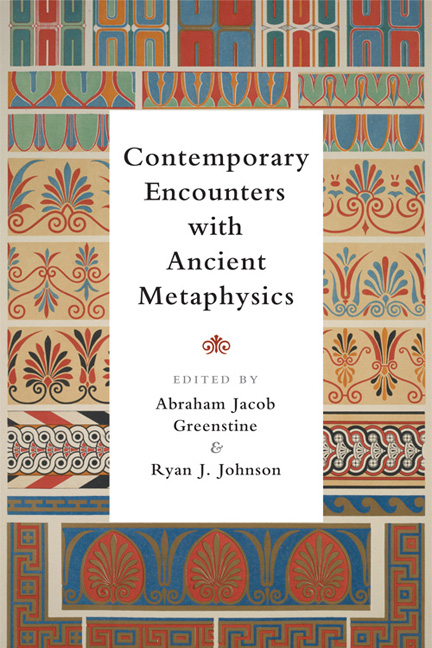Book contents
- Frontmatter
- Contents
- Acknowledgements
- Note on the Text
- Notes on Contributors
- 1 A Thousand Antiquities
- Part I Plato
- 2 The Muses and Philosophy: Elements for a History of the Pseudos [1991]
- 3 Odysseus’ Changed Soul: A Contemporary Reading of the Myth of Er
- 4 Plato's Protagoras: The Authority of Beginning an Education
- 5 Univocity, Duality, and Ideal Genesis: Deleuze and Plato
- 6 “Adjust Your Dread”: Badiou's Metaphysical Disposition
- Part II Aristotle
- Part III Epicureans, Stoics, Skeptics, and Neo-Platonists
- Part IV Postscript
- Index
4 - Plato's Protagoras: The Authority of Beginning an Education
from Part I - Plato
- Frontmatter
- Contents
- Acknowledgements
- Note on the Text
- Notes on Contributors
- 1 A Thousand Antiquities
- Part I Plato
- 2 The Muses and Philosophy: Elements for a History of the Pseudos [1991]
- 3 Odysseus’ Changed Soul: A Contemporary Reading of the Myth of Er
- 4 Plato's Protagoras: The Authority of Beginning an Education
- 5 Univocity, Duality, and Ideal Genesis: Deleuze and Plato
- 6 “Adjust Your Dread”: Badiou's Metaphysical Disposition
- Part II Aristotle
- Part III Epicureans, Stoics, Skeptics, and Neo-Platonists
- Part IV Postscript
- Index
Summary
I was going to have said that Hegel was blunt, but his reputation precedes him, no doubt, and such an obvious lie would have cast suspicion on the rest of my contribution. Let me say, instead, that he has the virtue of being certain of his interpretation of the history of philosophy, certain of how each part fits into the framework he provides, and certain that providing a framework is the task of philosophy as such. And if even Hegel can be forgiven for any particular misreading, the more troubling betrayal lies in the certainty that philosophy is defined and framed through the articulation of claims – through situating the agency of language in the action of contestation oriented by the progress of science. This framing is the most difficult for academics to avoid, for the technologies of argument (whether consciously Hegelian or not) dominate teaching and publishing throughout the modern academy. That this technology is at stake, and that merely arguing for a more humanistic technology or more open stance toward unconventional claims will not solve the problem,1 is the difficulty and contribution I seek to draw out of Plato's Protagoras.
At the broadest level, the Hegelian frame is the embodied structure of subjective grasping or comprehension, and Socrates, Plato, and Aristotle are seen as the great precursors to Hegel's insight. Hegel is not accusing the Athenian philosophers of believing that humans possess rationality, or use some sort of rationality as a tool; in fact, his continuing attraction for continental philosophers rests in the idea that participation in the activity of the world constitutes a developing language, unbound by a priori rules of reason or reified ideas of subjectivity.2 The Athenian trio, Hegel tells us, were the first to turn to the authority of a moral claim in a subject's apprehensions (Socrates’ emphasis on the task of philosophy), of the conceptions themselves (Plato's ideas), and then finally of the process of perfecting those conceptions in a self-conscious appropriation of the reality of one's situation (Aristotle's ἐνέργεια as ontological foundation grasped in ἐντεƛεχεία).
- Type
- Chapter
- Information
- Contemporary Encounters with Ancient Metaphysics , pp. 47 - 64Publisher: Edinburgh University PressPrint publication year: 2017



